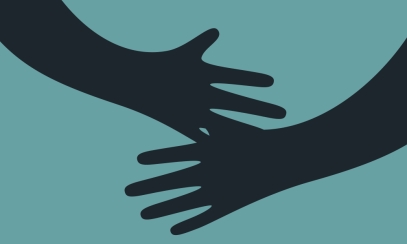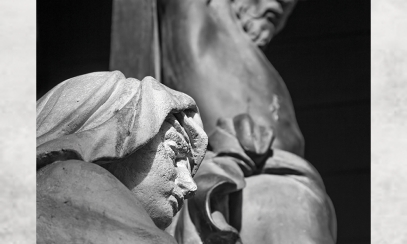
Euphemisms don’t do it justice: What the Catholic Church believes about euthanasia
Getting your Trinity Audio player ready...This month marks the 20th anniversary of the death of Terri Schiavo, brain-injured Catholic woman from Florida who was killed after her feeding tube was removed by medics. Terri took 13 days to die. May she rest in peace.
In Terri’s honor, a new center to care for the brain-injured is being established within the Diocese of Lansing. The Terri Schiavo Home for the Brain Injured will be based in Howell. It is the initiative of Catholic Healthcare International, a healthcare apostolate inspired by Saint Padre Pio.
Terri’s brother, Bobby Schindler, now recalls the terrible events of two decades ago and the lesson to be learned from his sister’s life and death: Euthanasia is always wrong.
This month marks the 20th anniversary of the death of Terri Schiavo, brain-injured Catholic woman from Florida who was killed after her feeding tube was removed by medics. Terri took 13 days to die. May she rest in peace.
In Terri’s honor, a new center to care for the brain-injured is being established within the Diocese of Lansing. The Terri Schiavo Home for the Brain Injured will be based in Howell. It is the initiative of Catholic Healthcare International, a healthcare apostolate inspired by Saint Padre Pio.
Terri’s brother, Bobby Schindler, now recalls the terrible events of two decades ago and the lesson to be learned from his sister’s life and death: Euthanasia is always wrong.
In January 2000, after a week-long trial, Pinellas-Pasco County Circuit Judge George W. Greer ruled in favor of deliberately killing my sister. On March 31, 2005, after almost two weeks of being denied food and water, Terri died of dehydration.
Until recently, removing a disabled person’s feeding tube — considered basic and standard medical care — would not only be unthinkable but also a criminal act. However, the legal denial of food through feeding tubes has been redefined from ordinary care and is now considered “medical treatment.”
It was in the 1980s when bioethicist Daniel Callahan, co-founder of The Hastings Center, a bioethics research institute, openly stated, “The denial of nutrition may become the only effective way to make certain that a large number of biologically tenacious patients actually die.”
Callahan considered feeding tubes as the critical obstacle to ending the lives of the medically dependent who were “living too long.” In other words, he argued that a revision was needed so that the medical community (or surrogates) could deny or withdraw feeding tubes.
Shortly after Callahan made this statement, feeding tubes — simple devices relying on a tube and gravity — were reclassified as “medical treatment” rather than a basic necessity for life, opening the door to legalizing the premature ending of the lives of medically vulnerable patients in all 50 states. It is important to note that Catholic teaching regards feeding tubes as a form of basic and ordinary care, not as extraordinary or optional treatment.
Many of the changes in our nation’s health care — such as the denial of lifesaving treatments — stem from the influence of secular humanists who dominate the field of bioethics, shaping medical ethics, law, and public policy, all of which directly impact patient treatment protocols. However, these changes only reflect a prevailing attitude that has plagued those labeled as lebensunwertes Leben, “life unworthy of life.”
In the U.S., 10 states now permit assisted suicide, while more than a dozen others, including Michigan, have pending legislation on the issue. Government officials and their allies in the media have begun referring to the deliberate and intentional killing of ill individuals as “physician-assisted death” or “medical aid in dying.” These euphemistic terms attempt to mask the grim reality of ending the lives of those who can no longer contribute or care for their families, revealing a troubling trajectory for our society — one that echoes disturbing precedents in history.
Most are familiar with the well-documented Nazi Aktion T4 program named after the street address of a former Berlin villa. It became the headquarters of the nationwide eugenics program that began in 1939. The intent was to eradicate those considered unworthy of life: the incurably ill, the mentally or physically disabled, the elderly, and the emotionally distraught, among others. It is estimated that the T4 program was responsible for the death of upwards of 300,000 individuals by starvation, lethal injection, or poison gas.
In the 1920s, the U.S. had its own type of eugenics movement. In his concurring opinion in Box v. Planned Parenthood of Indiana and Kentucky, Inc., U.S. Supreme Court Justice Clarence Thomas wrote that the U.S. eugenics movement infiltrated the American education system, “particularly among progressives, professionals, and intellectual elites.”
Thomas observed, “Leaders in the eugenics movement held prominent positions at Harvard, Stanford, and Yale, among other schools, and eugenics was taught at 376 universities and colleges” and described it as a “full-fledged intellectual craze.” This teaching was the foundation of today’s elite training and education of the masses to accept death as a service to family and country.
Yet, as Catholics, we have a duty to protect, to work for the common good, and to work together for the well-being of all. The Catholic social teaching of solidarity calls for collective responsibility and the societal imperative that we speak of these atrocities to make it unthinkable for someone, either family or medical provider, to starve a person to death.
In addition to the collective call, the Catholic principle of subsidiarity emphasizes the importance of addressing needs at the most local level possible. As family members and neighbors of the medically vulnerable, we are called to personally teach our families the sacred honor, privileged responsibility, and moral imperative of caring for our loved ones.
We must also educate our communities on the value of integrating even those considered profoundly impaired. Our Catholic faith teaches that killing people is not an option. These people are still alive and are beloved children of our Father.
There are many stories of people once thought to be “brain dead” and without hope who regained their abilities because a family member refused to give up on them. You can be that person bringing hope to the hopeless. And each of us can speak out for and vote for people who reject death as a solution to difficult circumstances.
Our faith and human justice cry out in anguish when a beloved child of God is subjected to the torment of death by starvation and dehydration, and only the willfully blind could mistake such cruelty for compassion.
My sister Terri, and all the other people who have been starved and dehydrated to death in a direct and intentional act of murder, deserved better.



